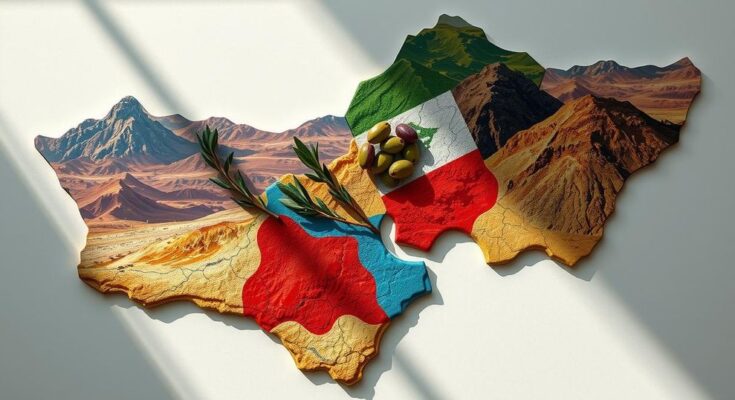The diplomatic feud between South Africa and Rwanda worsened after South African President Cyril Ramaphosa accused the Rwandan-backed M23 rebels of killing South African peacekeepers in the DRC. The conflict has resulted in rising casualties as tensions rise over military involvement and accusations of offensive operations against local populations. The situation poses a complex dilemma for South Africa regarding its military strategy and the potential for withdrawal from DRC amidst escalating tensions.
Diplomatic relations between South Africa and Rwanda have deteriorated following accusations from President Cyril Ramaphosa against the Rwandan-backed M23 rebel group for the death of South African peacekeepers in the Democratic Republic of Congo (DRC). As the rebels have gained control over Goma, South Africa issued stern warnings, stating that any further attacks on its troops would be perceived as a declaration of war.
In retaliation, President Paul Kagame of Rwanda accused South Africa of engaging in offensive operations supporting the Congolese government against its own citizens. This conflict has resulted in significant casualties, with 13 South African soldiers killed, adding to the previous year’s toll of seven fatalities.
The history of tension between the two nations includes incidents such as the 2014 expulsion of diplomats and a recent attempt at rapprochement during Ramaphosa’s visit to Rwanda. Nevertheless, renewed hostilities emerged after South African forces entered DRC as part of a peacekeeping mission to curb armed groups in the region, which has faced longstanding instability.
Ramaphosa acknowledged having communicated with Kagame about the conflict escalation while emphasizing the urgent need for a ceasefire. However, South Africa’s Defence Minister Angie Motshekga stated that if attacks continued, South Africa would interpret this as war, suggesting a lack of consensus on diplomatic rhetoric.
Kagame rebutted claims from South African officials regarding the deaths of the soldiers, categorizing the Rwandan Defence Force as an army rather than a militia. He asserted that South Africa’s involvement has aligned with hostile forces, urging for a withdrawal of South African troops from the DRC.
The conflict in DRC is rooted in complex historical dynamics, including South Africa’s military involvement dating back to the 1990s. Despite South Africa’s intention to stabilize the region, criticisms arose concerning its military readiness, as budget cuts have diminished its capabilities to counter modern threats from armed groups.
Expert analysis indicates that South Africa may need to reevaluate its military strategy and presence in DRC in light of ongoing risks to its soldiers. However, any decision regarding troop withdrawal must consider the broader consensus within the Southern African Development Community (Sadc), which deployed the forces initially.
In conclusion, South Africa faces a challenging decision: continue military engagement in a conflict that is increasingly perilous for its troops or withdraw, which requires careful negotiations to ensure their safe exit. The outcome of this diplomatic crisis will significantly impact regional dynamics and the efficacy of international peacekeeping efforts.
The tensions between South Africa and Rwanda exemplify the complexity of regional politics surrounding the ongoing conflict in the Democratic Republic of Congo. South Africa’s involvement in peacekeeping missions stemmed from a historical commitment to regional stability post-apartheid, although the financial and operational capacity of its military has eroded over the years, raising concerns regarding its effectiveness on the ground. Rwanda’s support for the M23 rebel group has further complicated matters, leading to increased animosity and military casualties, sparking a renewed examination of foreign military interventions in the region.
The recent escalation in conflict between South Africa and Rwanda emphasizes the fragile nature of regional diplomacy in the face of military engagements and historical grievances. The deaths of South African peacekeepers catalyzed a diplomatic feud that highlights the need for thoughtful reassessment of involvement in DRC’s ongoing strife. This situation poses a strategic dilemma for South Africa, underscoring the intricate balance between national interests, regional stability, and the safety of its personnel in foreign deployments.
Original Source: www.bbc.com




